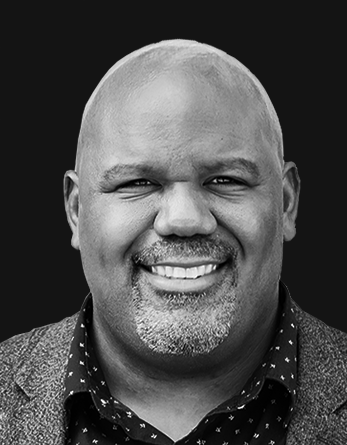
The Lord has called me to plant churches, starting with the Bridge Church in Brooklyn, NY, in April of 2014. Part of the mission of Bridge Church is to plant churches all over New York City. We have grown tremendously in the last two years.
In care ministry, though, especially as the church grows, I can’t be in all places at all times. Because of this reality, it’s important to have a ministry of absence just as much as a ministry of presence. That’s not to say I’m not there for my people, only that I’m strategic in how I am there for them.
Creating a culture of care
Within Bridge Church I want to create a culture of care, rather than me always serving as a counselor or having only one or two leaders in the church who provide care in this way. I’m not always in a place where I can be that go-to sounding board, and I know many of our leaders feel the same way. So one of the main ways that we care for one another is through our City Groups.
City Groups
When we began the church, we wanted to start the church off as a small group that grows. So we started a Bible study at the church, and from there we started to identify people who were faithful, who wanted to grow, and who were hungry for development. As I developed those people, I allowed them to have more voice in the Bible study, and then I divided that Bible study into three separate Bible studies. We called these City Groups. So when we started the church, we had one City Group. Over time, that multiplied to three, and now we’re at nine.
I personally did not lead a City Group, but what I did was spend my time continuing to disciple the City Group leaders. In one sense, this process and organization mimicked Exodus 18, where Jethro tells Moses to create a hierarchy or structure of development. So from very early on, I focused on supporting, encouraging, and developing other leaders.
The leaders of these groups, essentially the face of care in our church, minister to the people who are in their group. They “do life” with them. The City Group has become a primary place of care for the members of the church and the leaders, too.
Training leaders via discipleship-oriented friendships
In a church like ours, we have to be intentional about training leaders. One of the main ways that I like to train others is simply to make authentic friendships that are discipleship-oriented. In other words, I get to know people and intentionally push them toward growth. I try to create an atmosphere where I can authentically speak into their lives. By spending time with them, in some ways I earn the right to speak into their lives. I think God has given me a gift of discernment and exhortation, so I try to put that on display and model that for them.
Within their City Groups, our leaders encounter different situations they need help with, for instance, someone struggling with suicidal thoughts, issues of domestic violence, and other types of life issues. As the leaders bring situations to me from their own groups, I push back and help them work through it, so they can learn and grow. Now, after two years, we’ve created a culture of counseling rather than me being the sole counselor of the church.
Using conflict as teaching moments
Sometimes, conflict arises within the church, and this can be a great source of training for leaders. Most of us are terrible at dealing with conflict. So I use those moments to teach passages like Matthew 18 and 1 Corinthians 13, walking people through those Scriptures and modeling how to deal with conflict. I try to give people the courage to confront in love and empower them with language. There’s a lot of ministry and learning opportunities in just walking people through conflict.
One of the things that I tend to do as well, along these same lines, is put the leaders in a position to understand what the problem really was. Sometimes in conflict, the problem itself is misunderstood. So I push our leaders to dissect the assumptions and determine what the truth is. I ask them, “Why did so-and-so say that?” or “How do you know such-and-such?” By pressing into them, I’m following the idea in Philippians 4:8 to think about what is true, rather than relying on our own imaginations.
Integrating care into everyday life
Despite the ways I try to minister to people, there will always be difficulties. One of the greatest difficulties I encounter is time management, much like many other pastors. To deal with this, I try to integrate meeting with people into my everyday life. So for instance, instead of meeting for coffee and talking for an hour, I’ll invite them over to my house for dinner with my family or to go to the mall with me. So instead of having an additional meeting, I incorporate them into my family, because we want to value the idea of us all being a part of the family of God.
I am nowhere near the friend the Holy Spirit can be.
Prayer and intercession
The other way I manage my time is intercession. I fundamentally believe the greatest step of care I can have is to fervently and affectionately pray for my people. I am nowhere near the friend the Holy Spirit can be. So I can spend a few minutes just interceding for them, and I know the Spirit of God intercedes with groans that are deeper than words (Rom. 8:26). So the Spirit of God is literally taking my heart for them and ministering to them. I spend time praying for my people, especially my leaders. I think we would be much more wise to pause and reflect on God’s presence in our lives through prayer than simply scheduling meetings all the time.
Relying on God’s presence in people’s lives
I know that I can’t always meet with everyone when they want to meet with me. In those times, I go to God and ask Him to pour out His presence in their lives. I ask Him to deepen their lives in Him and speak to them in such a way that they know He has not forsaken them. I’ve seen God answer that prayer consistently as I bring it to Him. In some sense, I want people to know that I am not the Wonderful Counselor, but it’s the Holy Spirit who works in and through us.
It’s important to have a ministry of absence just as much as a ministry of presence.
We have some big challenges ahead, but we already see God working through Bridge Church. He has enabled me to see the need for the gospel in New York City, and He has equipped me to care for His people. We have seen God’s provision in sending people to our church plant and raising up leaders with all sorts of gifts. And we are able to make God’s Word relevant to the people of this city. As I say on our website, our mission is to connect to God, grow with family, and serve our city. And we are doing that for His glory in New York City.
The following articles will further aid you in building a care ministry in your church:
A Vision for Care Ministry, Discipleship, and Counseling by Andrew Rogers
Why Your Deacons Should Be Involved in Care Ministry by Dr. Tim Lane
How to Recruit Care Ministry Leaders by Kathy Leonard

